Shalom Italia tells the story of three brothers, who set off on a journey to find a cave in the woods of Tuscany. The place where they, as children, hid to escape the Nazis. But more than a search to find a geographical location, the brothers are on their way to locate the common ground of memory, the nexus where the conflicting versions of their stories can come to rest.
Related Movies
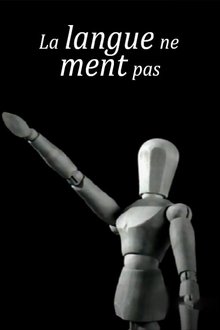
Language Does Not Lie (2004)
Victor Klemperer (1881-1960), a professor of literature in Dresden, was Jewish; through the efforts of his wife, he survived the war. From 1933 when Hitler came to power to the war's end, he kept a journal paying attention to the Nazis' use of words. This film takes the end of 1945 as its vantage point, with a narrator looking back as if Klemperer reads from his journal. He examines the use of simple words like "folk," "eternal," and "to live." Interspersed are personal photographs, newsreel footage of Reich leaders and of life in Germany then, and a few other narrative devices. Although he's dispassionate, Klemperer's fear and dread resonate
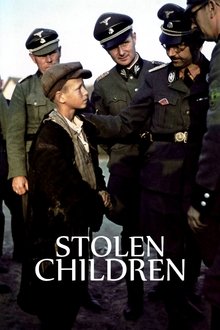
Stolen Children (2020)
June 1941, during World War II. Reichsführer-SS Heinrich Himmler orders the mass abduction of particularly well-bred young children from Poland and the occupied territories of the Soviet Union in order to be educated in German culture, by both state schools and German families…
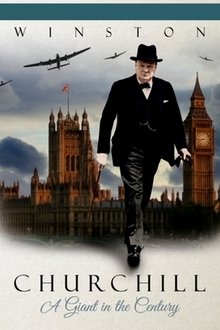
Winston Churchill: A Giant in the Century (2014)
A new look at the public and private life of one of the most important statesmen in the history of Europe: Winston Churchill (1874-1965), soldier, politician, writer, painter, leader of his country in the darkest hours, winner of the Nobel Prize in Literature, a myth, a giant of the 20th century.

JA (2020)
Jacob, an elderly man living in a luxurious villa near Geneva called Rosebud, has just changed his name for the third time and become a Swiss citizen. His granddaughter comes to visit to make a portrait of him. As she searches for a way to bring his story to life, Jacob abandons the project…
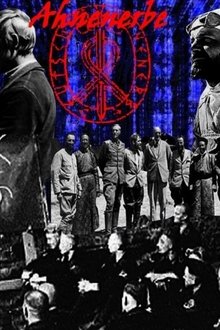
Ahnenerbe : Les Terribles Savants d'Hitler (2017)
The Ahnenerbe (The adopted heritage). A pseudo-scientific organization which, under Heinrich Himmler's orders, has sought by all means to prove the superiority of the Aryan race over the centuries.
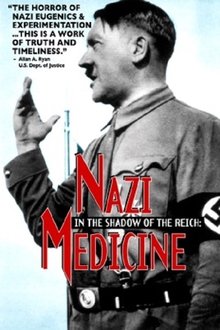
In the Shadow of the Reich: Nazi Medicine (1997)
Examines the step-by-step process that led German medical professionals down an unethical road to genocide.
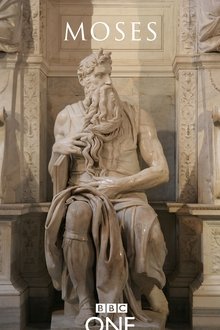
Moses (2002)
The Old Testament book of Exodus tells the story of Moses leading the Hebrews out of Egypt. This documentary explores this exodus and Moses to find proof that he really did exist. Records found in Egypt, recent scientific discoveries, and research propose that he did live. Learn how a distant volcano and flooding of the Nile could be related to the ten plagues and the parting of the Red Sea.

Detained (2001)
Najwa, Nawal, and Siham, three Palestinian widows, live with their 11 children in a house on Shuhada Street in Hebron. Their house lies on the border; the façade is under Israeli occupation, the Palestinian Authority controls the back. At the entrance to the house is a military post; on the roof the Israeli army has placed a watch point over Palestinian Hebron. The three women, trapped in the middle and constantly surrounded by Israeli soldiers, carry on their difficult lives in a perverse situation: the occupation becomes a routine, the absurd becomes a given. This is the story of an occupation that extends to the staircase and the roof of the house, where it encounters poverty, loneliness, pain, but also the small joys of everyday life. This is an internal prison, the external one is the ongoing occupation.
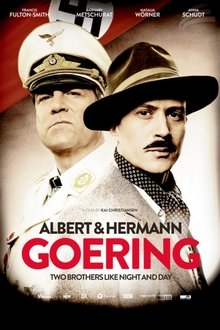
Albert & Hermann Goering (2016)
Two brothers who could not have been more different. The eldest, Hermann Göring (1893-1946), was a prominent member of the Nazi regime, head of the German Air Force, and a war criminal. The youngest, Albert Göring (1895-1966), opposed tyranny and was persecuted, but today he is still unjustly forgotten, although he saved many lives while his brother and his accomplices ravaged Europe.

Sieben Mulden und eine Leiche (2007)
Thomas Haemmerli is about to celebrate his fortieth birthday when he learns of his mother's death. A further shock follows when he and his brother Erik discover her apartment, which is filthy and full to bursting with junk. It takes the brothers an entire month to clean out the place. Among the chaos, they find films going back to the 1930s, photos and other memorabilia.
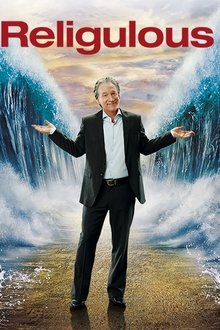
Religulous (2008)
Commentator-comic Bill Maher plays devil's advocate with religion as he talks to believers about their faith. Traveling around the world, Maher examines the tenets of Christianity, Judaism and Islam and raises questions about homosexuality, proof of Christ's existence, Jewish Sabbath laws, violent Muslim extremists.
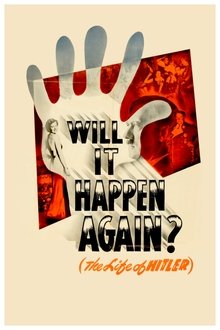
Will It Happen Again? (1948)
An account of Adolf Hitler's rise and fall, his relationship with Eva Braun and their days of leisure at the Berghof, their Bavarian residence.
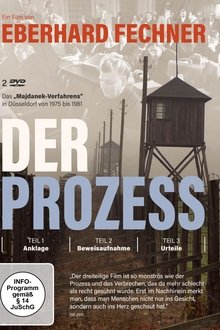
The Trial (1984)
In over eight years of research, "Der Prozess" follows the longest criminal proceedings in Germany′s legal history - the "Majdanek Trial". In interviews with judges, the accused, victims and eye witnesses, and with the use of documentary footage and reports, the film recounts (in three parts) the legal trials against the workers and perpetrators of the Lublin/Majdanek concentration camp from the first day to the pronouncement of the judgment.

Blaming the Jews (2006)
Some extreme anti-Semitics maintain the Jews were behind 9/11, are responsible for the spread of AIDS and other diseases, and that they invented the Holocaust. The Jews are also accused of murdering babies in ritual sacrifice, and of working towards a secret goal of world domination. Journalist and commentator David Aaronovitch travels to the Middle East to find out just how widespread such views are, what the causes are, and to ask what can be done to combat such thinking. Travelling between Israel and Gaza, Aaronovitch encounters a disturbing degree of hostility among the Palestinians. A trawl through recent excerpts of Palestinian TV reveals just how much animosity there is directed towards the Jews.
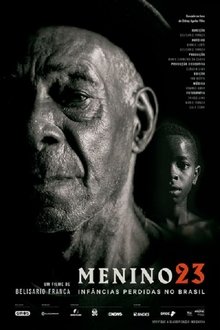
Boy 23: The Forgotten Boys of Brazil (2016)
The film accompanies the investigation of the historian Sidney Aguilar after the discovery of bricks marked with Nazi swastikas in the interior of São Paulo. They then discover a horrifying fact that during the 1930s, fifty black and mullato boys were taken from an orphanage in Rio de Janeiro to the farm where the bricks were found. There they were identified by numbers and were submitted to slave labour by a family that was part of the political and economic elite of the country and who did not hide their Nazi sympathizing ideals.
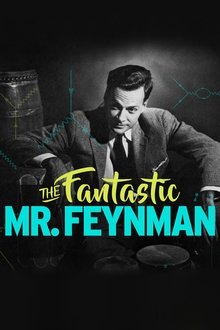
The Fantastic Mr Feynman (2013)
Richard Feynman is one of the most iconic, influential and inspiring scientists of the 20th century. He helped design the atomic bomb, solved the mystery of the Challenger Shuttle catastrophe and won a Nobel Prize. Now, 25 years after his death - in his own words and those of his friends and family - this is the story of the most captivating communicator in the history of science.
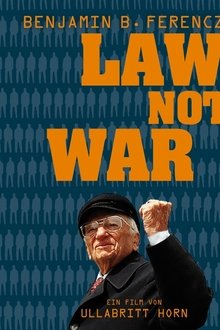
Law Not War (2015)
Chronicles the adventurous life of Hungarian-born Jewish lawyer Benjamin Ferencz, who fled to the USA as a child and later became chief war crime prosecutor in the Nuremberg Trials of 1945-1949 and one of the founding members of the International Criminal Court, which entered into force in 2002.

Football Royal (1955)
Documentary short about an anual football game being helf in Florence, Tuscany in Italy dating back to medieval times.
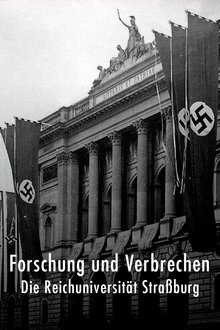
Research and Crime: the Reich University of Strasbourg (2018)
Strasbourg was home to one of three Reich Universities founded by the Nazis, known as a project close to Hitler's heart. The university, founded in 1941, is infamous for the human experiments performed on KZ prisoners by the professors of the medical faculty. What did its dean, Johannes Stein, grandfather of documentarian Kirsten Esch, know of these crimes?
